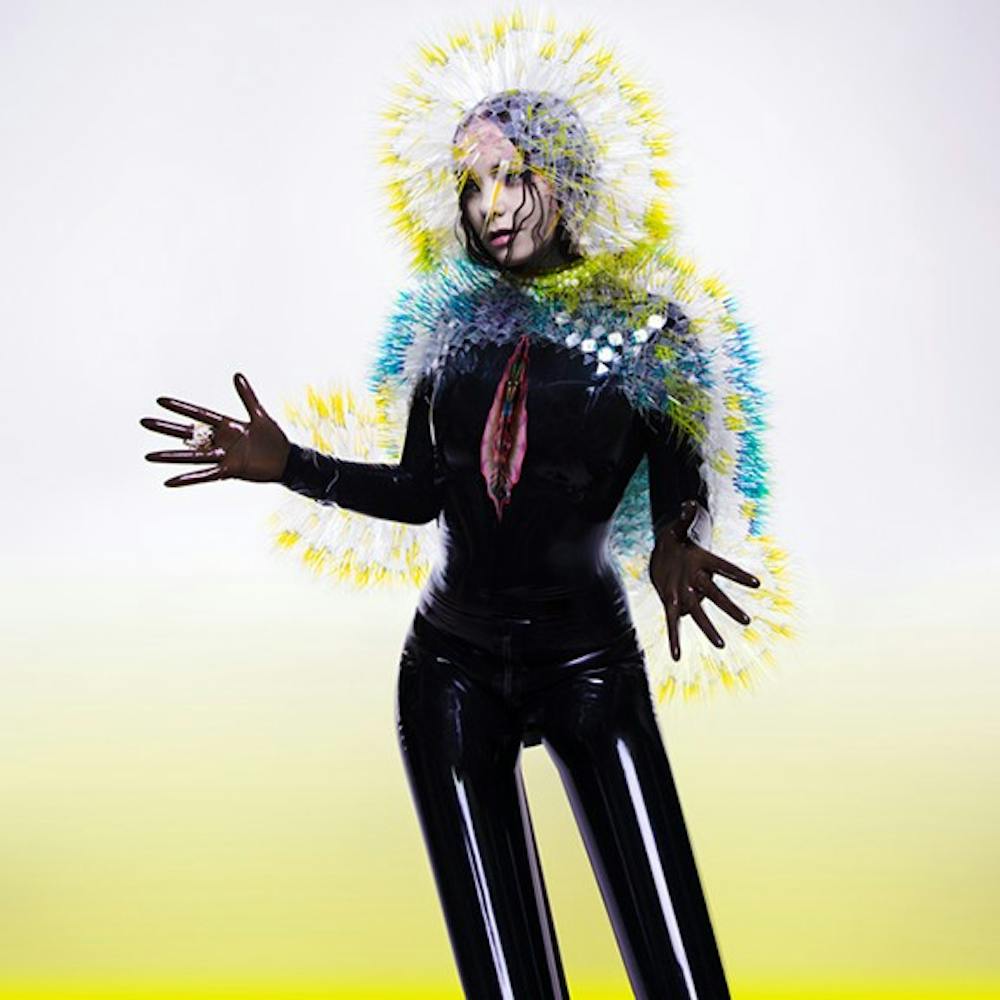Björk’s career is impressive. She’s been going full throttle since she got her start in 1977 when she released her first album at 11 years old in Iceland. Now she’s 49, but it doesn’t look like she’s slowing down anytime soon — she’s still as eccentric as ever.
The queen of avant-garde electronic, Björk, quietly released her ninth studio album Jan. 20, and it’s become a sentimental benchmark to her discography.
This isn’t just any Björk album — “Vulnicura” is the best thing she’s produced in years. This is possibly the most powerful work that she’s ever released and definitely the most personal. The comments left for her on Facebook proved that this public display of emotion created a serious bond between her and her fans.
The tracks on “Vulnicura” brought Björk’s music to a new level of sensitivity. Compared her well-known tracks from past albums such as “Post,” this album delves into the topics of love, motherhood, break-up and passion.
She co-produced the album with Arca, producer of Kanye West’s “Yeezus” and FKA Twigs’ “LP1” and surprised the media with this release. She posted a handwritten note to her Facebook page Jan. 13, announcing “Vulnicura” with the song titles, promising its release.
In March.
Contrary to the post, the album was rush-released 7 days later on iTunes because it had leaked. As of Jan. 25, it’s No. 5 on the iTunes Top Album list.
In an interview with Pitchfork, Björk said, “When I did this album—it all just collapsed. I didn’t have anything. It was the most painful thing I ever experienced in my life.”
And that feeling is showcased outright in every song — this isn’t driving music, but it’s extremely powerful.
As her first release since 2011's “Biophilia” Björk’s sound has grown as her life changed — the album plays like an orchestrated diary.
As she shared on her Facebook, “i guess i found in my lap one year into writing it a complete heartbreak album . kinda surprised how thoroughly i had documented this in pretty much accurate emotional chronology[.]”
Rather than depending on electronic and synth sounds she incorporated plenty of violin into the tracks, making them all the more passionate. The album is an extremely heavy work of love that compliments her beautiful, Icelandic accent perfectly.
Every track on this album has its place, but some of the best are “Quicksand,” “Atom Dance” and the album’s ten-minute ballad “Black Lake.”
At eight minutes in length, her fifth track on the album, “Family,” is practically split down the middle into what seems like two songs — there’s a radical beat change around the three minute mark, catching the listener right at the point they might start to fade.
She repeats the words “emotional” and “respect” in several songs, as she belts about the tenderness of working through a relationship and keeping her family from tearing apart. She sings lines like, “Maybe he will come out of this / Maybe he won’t” in “Lionsong,” and “Did I love you too much?” in “Black Lake.”
Sometimes an artist’s greatest work is when they’re tormented or troubled, and I believe that she's this type of artist. We all love catchy songs like “Human Behaviour,” but we’ve never seen her quite like this. If Björk were Leonardo da Vinci, “Vulnicura” would be her “Mona Lisa.”

